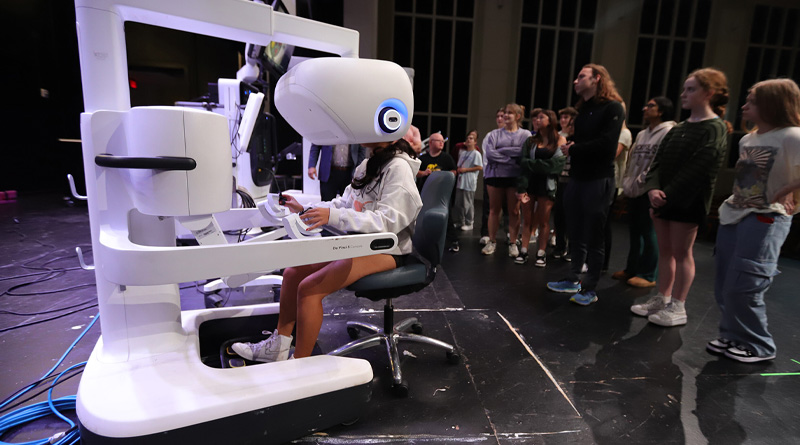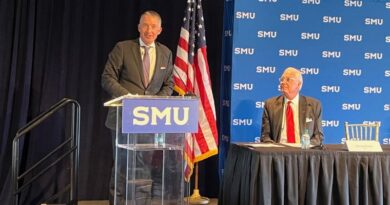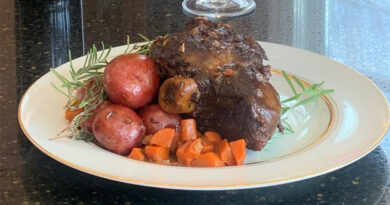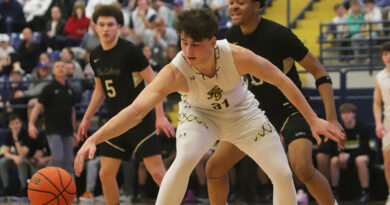Scots Probe Robotic Surgery, Medical Myths, Flight
Do you wonder what it’s like to be a cancer researcher, or how medical students train to use robotic surgical systems? Ever thought about flying for the Air Force, developing the next hit video game, or building a safer highway?
Highland Park High School students had a chance to explore these careers and many more in the fields of science, technology, engineering, medicine, and research during the school’s annual Science & Technology Festival.

Seventy industry leaders donated their time to make the 18th annual festival a success. Students chose to attend a session that sparked their interest during their regularly scheduled science and technology classes.
“I hope it was fun and engaging, and that students were able to find potential careers to explore for their future,” said Kimberly Slade, who co-chaired the event with Michele Vicente.
The chairs worked to involve parents and alumni, to increase the variety of speakers, and to introduce students to careers they might not have previously considered, Slade said. The festival was made possible by support from presenting sponsor La Fiesta de las Seis Banderas and the Highland Park Education Foundation.
In the high school’s auditorium on Nov. 18, Daniel G. Davis, chief of bariatric surgery at Baylor University Medical Center in Dallas, introduced students to the fifth generation of the da Vinci robotic surgical system, which he said arrived at Baylor this summer.
Davis showed students a video of a sleeve gastrectomy, a weight loss surgery which decreases the stomach’s size from that of a football to a large banana.
Then, the high schoolers tried their skill at the system’s training simulator and sat in the surgeon console themselves. Their surgery was less high-stakes; they were challenged to manipulate the da Vinci’s four arms to put tiny rubber bands onto colorful, pinkie-sized mounds.
“Uh-oh, you got it mad,” Davis jokingly told freshman Isabel Carvalho as the robot made a low beeping sound while she aimed the rubber bands.
Two floors above Davis, oral and maxillofacial surgeon John Wallace took on the myth that drinking pineapple juice before a wisdom tooth extraction reduces inflammation after surgery.

Pineapples, he explained, contain an anti-inflammatory agent. But patients would need to eat 420 pounds of the fruit for it to have an effect.
Wallace also introduced students to the X-Guide system, technology he uses daily to place dental implants. He explained how the device worked before giving students a chance to handle the drill themselves.
“I’m hoping that at some point in the future, somebody goes, ‘I remember that,’ and it changes what they choose to do with their life,” Wallace said. “It tickles something in their brain, and, wow, they get motivated to do something.”
In another classroom, HPHS junior Raleigh Jewell, who said he’s interested in a career in the Air Force, listened to a presentation from Boeing 767 first officer and Air Force reservist Kevin Gibbs.
“I think that it definitely gives a little bit more perspective of what goes and on and what he’s done career-wise,” Jewell said, explaining that he’s now even more interested in an Air Force career. “It gives me a better perspective of a day in the life.”









